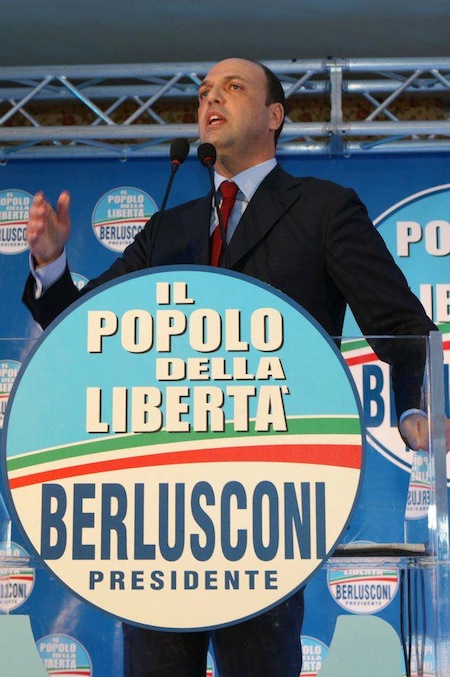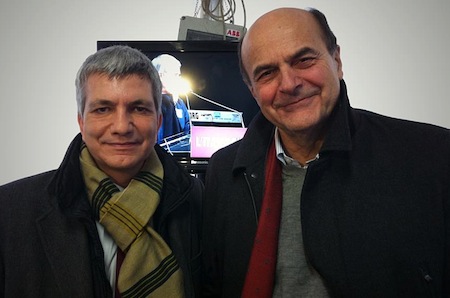Due to electoral law considerations, Italy hasn’t seen any new election polls in 12 days, but when the polling blackout began, one thing seemed certain — former prime minister Silvio Berlusconi had cobbled together a strong centrodestra (center-right) coalition that had narrowed the once insurmountable lead of the centrosinistra (center-left) to within single digits.![]()
It still seems unlikely that Berlusconi could pull off a comeback that would return the centrodestra to power, but if he actually does, he has agreed not to return as prime minister in the next government.
In a bid to bring the autonomist Lega Nord (Northern League) into his coalition, Berlusconi pledged to the Lega Nord‘s leaders in January to put forward former justice minister Angelino Alfano as a candidate for prime minister instead — that now looks like a wise move, given that the coalition has come within striking distance of the centrosinistra only because of the relative strength of the Lega Nord‘s supporters in northern Italy.
In particular, the centrodestra remains essentially tied to win the Italian senatorial elections in the region of Lombardy, Italy’s wealthiest and most-populous, on the strength of the Lega Nord. Although Lombardy leans right in most years, Berlusconi’s unpopularity has put the region in play; in simultaneous regional elections, the Lega Nord‘s national leader Roberto Maroni is running a spirited campaign to become regional president.
Notwithstanding his pledge, Berlusconi, as the leader of the Popolo della Libertà (PdL, People of Freedom), has led a characteristically spirited anti-austerity and populist campaign. Unlike the PdL and the main center-left party, the Partito Democratico (PD, Democratic Party), the Lega Nord never backed the technocratic government of prime minister Mario Monti in November 2011.
In a world where everyone has expected that Pier Luigi Bersani will lead the next Italian government, what would it mean if Alfano were suddenly in line to become Italy’s next prime minister?
First and foremost, you should expect that even if Berlusconi isn’t technically heading Italy’s government, he won’t be too far away from the thick of things. He’s said that he would serve in government as Alfano’s finance minister (of all posts, you’d think Berlusconi wielding power over Italy’s finances would terrify investors and bondholders, to say nothing of German chancellor Angela Merkel).
So there’s a chance that Alfano would serve as the Dmitri Medvedev to Berlusconi’s Putin — that’s something you might expect in Russia, but it’s not quite best practices for a thriving democracy or for Europe’s fourth-largest economy.
Alfano currently serves as party secretary of the PdL and, when Berlusconi stepped down as prime minister in November 2011, he indicated he would leave frontline politics and quickly anointed Alfano — over older figures like former finance minister Giulio Tremonti or the more staunchly conservative Rome mayor Gianni Alemanno — as his preferred successor.
Berlusconi being Berlusconi, of course, Italy was subject to an on-again, off-again Hamlet act from Il cavaliere, who gave contradictory indications about a return to politics before confirming in December 2012 that he would lead the PdL into the next general election.
So what of Alfano himself? Continue reading What kind of Italian prime minister would Angelino Alfano make?


